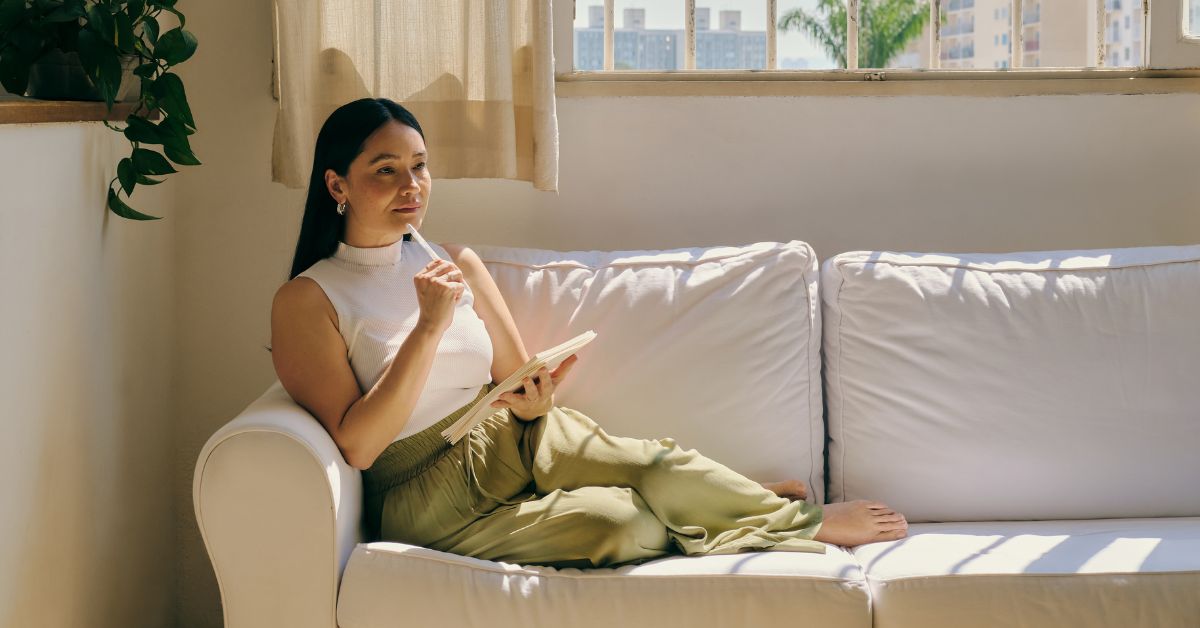
Mindfulness & Creativity: How staying present enhances your Imagination
Article Outline:
- Where Mindfulness Meets Imagination
- The Powerful Connection Between Mindfulness and Creativity
- Why Being Present Matters for Creative Thinking
- Psychological Insights: Mindfulness and Brain Science
- Practical Mindfulness Techniques for Enhanced Creativity
- Overcoming Creative Anxiety Through Mindfulness
- Creativity in the Present Moment
- FAQs
Where Mindfulness Meets Imagination
In a world saturated by distractions and constant noise, finding stillness can seem like an impossible task. Yet within the quiet space of mindfulness—a deliberate, gentle awareness of the present moment—lies a profound gateway to heightened creativity. Imagine your mind as a calm lake: when turbulent, its reflections distort, fragmented by endless waves. But when peaceful, the water becomes a clear mirror, reflecting vivid ideas with stunning clarity.
By practicing mindfulness, you intentionally quiet your mental chatter and sharpen your perception. In this tranquility, you awaken an imaginative power deeper than mere thought, tapping into an ocean of creativity hidden within your everyday moments.
The Powerful Connection Between Mindfulness and Creativity
Creativity and mindfulness may appear distinct at first glance—one about active imagination, the other about quiet presence. Yet beneath the surface, they intertwine beautifully, each enhancing the other. Mindfulness grounds your creativity in clarity, while creativity enriches your mindful awareness with fresh perspectives and inventive insights.
Renowned innovators and artists—from Leonardo da Vinci to contemporary writers and designers—often credit mindful observation as essential to their creative process. They understood something fundamental: great ideas are often discovered not by chasing them frantically, but by calmly observing, listening, and staying fully engaged in the present moment.
Why Being Present Matters for Creative Thinking
The essence of mindfulness lies in full engagement with the “now.” In contrast, creativity often suffers when our minds drift to past anxieties or future worries. Have you ever noticed how difficult it becomes to create when your mind feels scattered, overwhelmed, or distracted by external pressures?
Being fully present allows you to see familiar things through fresh eyes, to notice subtle details previously overlooked, and to appreciate connections your distracted mind might otherwise miss. Each mindful breath creates space for imagination to flourish, freeing your thinking from habitual patterns and opening you to unexpected revelations.
Psychological Insights: Mindfulness and Brain Science
The link between mindfulness and creativity is supported by compelling psychological and neuroscientific evidence. Mindfulness meditation, even practiced briefly, activates the brain’s prefrontal cortex—the area associated with creative thought, complex decision-making, and innovative problem-solving.
Research by psychologist Jonathan Schooler demonstrates that people who engage in mindfulness show significantly increased abilities in divergent thinking—the capacity to generate multiple unique ideas and solutions. Mindfulness literally rewires your brain, reducing habitual reactions and increasing openness to novel possibilities, proving scientifically what creative minds have long known intuitively.
Practical Mindfulness Techniques for Enhanced Creativity
Integrating mindfulness into your creative practice doesn’t require extensive meditation sessions or profound spiritual experiences. Instead, it involves simple, intentional practices designed to center your attention:
Mindful Breathing: Pause regularly throughout your day to observe your breathing. Spend a few moments following your inhale and exhale without judgment. Even brief mindful breathing calms mental turbulence and rejuvenates your creative energy.
Sensory Awareness Practice: Take time each day to engage deeply with your senses. Savor the taste of your morning coffee, listen intentionally to the sounds around you, or carefully observe textures, colors, and patterns in your surroundings. This heightened awareness enriches your creative imagination.
Mindful Observation Exercise: Choose an object—natural or ordinary—and observe it quietly, noting details you’ve never noticed before. This simple practice enhances your attention to subtlety, inspiring fresh ideas and deeper insights.
Overcoming Creative Anxiety Through Mindfulness
Creative anxiety—fear of judgment, rejection, or failure—often blocks imagination and inhibits expression. Mindfulness directly addresses this anxiety by teaching acceptance and compassion toward yourself and your ideas. Instead of fighting negative thoughts or judging your creative output harshly, mindfulness encourages you to acknowledge anxiety calmly, then gently return to the present moment.
This mindful acceptance reduces mental resistance and opens emotional space, allowing creative ideas to flow more freely. Creativity blossoms not by banishing anxiety altogether, but by cultivating a compassionate relationship with it.
Creativity in the Present Moment
Creativity isn’t confined to those with extraordinary talent or privileged inspiration; it emerges naturally when you commit yourself fully to the present moment. Mindfulness creates the conditions for your imagination to thrive—offering clarity, curiosity, and compassionate engagement that allow ideas to bloom authentically.
Today, allow yourself the simple gift of presence. Notice your surroundings, savor the sensations around you, and engage mindfully with each moment. You’ll find that creativity no longer seems elusive. Instead, it becomes your natural companion, waiting patiently in the stillness, eager to reveal the extraordinary in your ordinary experience.
Mindfulness reminds us beautifully: creativity is not something you chase; it is something you allow, gently and courageously, by embracing fully the quiet power of the now.
FAQs
Do I need extensive meditation experience to benefit creatively from mindfulness?
No. Even brief daily mindfulness practices significantly enhance creativity. Simple exercises like mindful breathing, sensory observation, or short meditations are enough to stimulate creative thinking.
Can mindfulness help if I constantly feel creatively blocked?
Absolutely. Mindfulness alleviates creative blockages by reducing anxiety, quieting negative self-talk, and bringing clarity. Regular practice builds mental resilience, enhancing your creative capacity.
How long does it typically take to notice creativity improvements through mindfulness?
Many people experience clearer thinking and improved creativity within just a few days of practicing mindfulness consistently. Long-term practice yields increasingly deeper benefits and sustained creative growth.